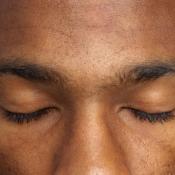 The third module of dialectical behavior therapy (DBT) is emotion regulation, which teaches clients how to manage negative and overwhelming emotions while increasing their positive experiences. This module encompasses three goals:
The third module of dialectical behavior therapy (DBT) is emotion regulation, which teaches clients how to manage negative and overwhelming emotions while increasing their positive experiences. This module encompasses three goals:
- Understand one’s emotions
- Reduce emotional vulnerability
- Decrease emotional suffering
An important aspect of emotion regulation is understanding that negative emotions are not bad, or something that must be avoided. They are a normal part of life, but there are ways to acknowledge and then let go of these feelings so that one is not controlled by them.
Often, clients with extreme emotional sensitivity go through cycles that begin with an event that triggers automatic negative thoughts. These thoughts then prompt an extreme or adverse emotional response, which may subsequently lead to destructive behavioral choices. The detrimental behavior is then followed by more negative emotions, such as shame and self-loathing.
Understanding and Labeling Emotions
The first skill in emotion regulation involves recognizing and naming emotions. Clients are taught to use descriptive labels such as “frustrated” or “anxious,” rather than general terms like “feeling bad,” because vaguely defined feelings are much more difficult to manage.
Another important distinction is that of primary and secondary emotions. A primary emotion is the initial reaction to an event, or to triggers in one’s environment, while a secondary emotion is a reaction to one’s thoughts, i.e., feeling depressed about having gotten angry. Secondary emotions are often destructive, making an individual more vulnerable to unhealthy behaviors. Therefore, in addition to naming both primary and secondary emotions, it is important for clients to learn to accept their primary emotion without judging themselves for experiencing it.
In DBT skills sessions, group leaders also discuss myths about emotions, such as the misconception that there are “right” and “wrong” ways to feel in certain situations. An additional topic is the purpose that emotions serve—which is to alert us that something in our environment is either beneficial or problematic. These emotional responses are stored in memory, and we are then more prepared when encountering similar situations in the future. Additionally, our emotions communicate messages to others through our words, facial expressions, and body language.
Reducing Emotional Vulnerability
The acronym for the first skill set in reducing emotional vulnerability is PLEASE MASTER:
PL – represents taking care of our physical health and treating pain and/or illness.
E – is for eating a balanced diet and avoiding excess sugar, fat, and caffeine.
A – stands for avoiding alcohol and drugs, which only exacerbate emotional instability.
S – represents getting regular and adequate sleep.
E – is for getting regular exercise.
MASTER – refers to doing daily activities that build confidence and competency.
The second skill designed to reduce emotional vulnerability is the building of positive experiences in order to balance life’s negative incidents and feelings. To accomplish this, clients are encouraged to plan one or more daily experiences that they can look forward to and enjoy. This might be participating in a hobby or sport, reading a book, spending time with a friend, or anything that brings the individual contentment. It is important to engage in these activities mindfully, centering attention on what one is currently doing. If an individual has difficulty focusing on the activity, he or she is advised to try something different. The client is also encouraged to identify long-term goals that will bring increased positive experiences into his or her life, such as learning a new skill or making a job change.
Decreasing Emotional Suffering
The last component of this module, decreasing emotional suffering, is comprised of two skills:
- Letting go
- Taking opposite action
Letting go refers to being aware of the current emotion through mindfulness, naming it, and then letting it go—rather than avoiding, dwelling on, or fighting it. This might involve taking a breath and visualizing the thought or feeling floating away, or picturing the emotion as a wave that comes and goes.
Taking opposite action means to engage in behaviors that would be typical when one is experiencing the emotion that is in direct contrast to the current feeling. For example, if a client is sad, he or she might try being active, standing straight, and speaking confidently—as the person would if he or she was happy. When an individual is experiencing anger, the person behaves as if he or she were calm by speaking in a soft voice and doing something nice for someone. This skill is not aimed at denying the current emotion; the individual should still name the emotion and let it go. However, acting opposite will likely lessen the length and severity of the negative feelings.
Some of the emotion-regulation skills may sound a bit vague to those unfamiliar with dialectical behavior therapy. In group sessions, DBT leaders cover these skills with clients in more detail, incorporating role playing so that the clients can transfer the new skills to situations in their own lives. Ultimately, these skills empower people to manage their emotions, rather than being managed by them.

The preceding article was solely written by the author named above. Any views and opinions expressed are not necessarily shared by GoodTherapy.org. Questions or concerns about the preceding article can be directed to the author or posted as a comment below.

 Distress Tolerance in Dialectical Behavior Therapy
Distress Tolerance in Dialectical Behavior Therapy Core Mindfulness in Dialectical Behavior Therapy
Core Mindfulness in Dialectical Behavior Therapy Managing Your Emotions Through Dialectical Behavior Therapy
Managing Your Emotions Through Dialectical Behavior Therapy

Please fill out all required fields to submit your message.
Invalid Email Address.
Please confirm that you are human.
Leave a Comment
By commenting you acknowledge acceptance of GoodTherapy.org's Terms and Conditions of Use.